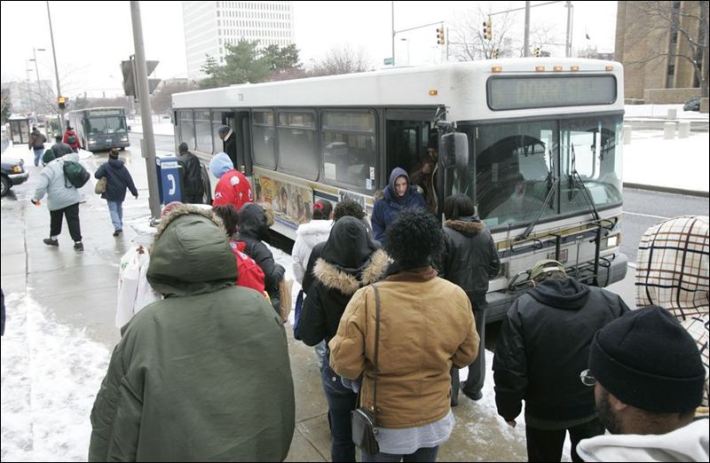Job markets are regional. So in order to serve a metropolitan region's workers and by extension the local economy, transit must also be regional, seamlessly serving both central cities and their suburbs, whose share of employment has grown. Almost everyone recognizes that.

That's why for decades, the nation's cities have been combining agencies and expanding tax districts to create regional transit systems. It's gotten to the point now where the only major city in the country that still lacks a regional transit system is Detroit -- and officials from the Federal Transit Administration are leaning hard on state and local officials to remedy that.
Which is why a handful of Balkanizing ballot initiatives in suburban communities in Ohio, Michigan and Maine this election were so alarming. Voters in four suburbs in these states were asked if they wanted to opt out of regional transit systems in greater Toledo, Ohio; Grand Rapids, Michigan and Portland, Maine.
Luckily, voters saw through those proposals. All four of those communities rejected the proposals, choosing to remain a part of their regional transit systems -- and all by fairly wide margins.
In Walker, Michigan, 73 percent of voters weighed in in favor of remaining in Grand Rapids' bus system. A similar referendum in Falmouth, Maine failed, with 70 percent of voters electing to remain part of Portland's METRO.
Meanwhile, in the Toledo, Ohio suburbs, Sylvania and Spencer Townships rejected the idea of withdrawing from regional transit by about a 60-40 margin. That was very good news for Toledo's regional transit system, TARTA, which lost the suburb of Perrysburg to an identical ballot measure this spring.
Perhaps Perrysburg served as a cautionary tale for these Ohio towns. The suburb of some 20,000 elected to abruptly withdraw from TARTA earlier this year, in effect withdrawing the $1.5 million in tax dollars it contributed to the agency's $28 million annual budget.
Immediately, some of Perrysburg's major employers were complaining that it would make staffing difficult. Meanwhile, taxpaying employees who relied on the system complained about two-hour commutes and expensive cab rides to minimum wage jobs. A few months after the decision, Perrysburg leaders made the embarrassing decision to ask the agency to restore some service, according to the Toledo Blade. But an agreement was never reached.
Instead, Perrysburg leaders put a measure on the November ballot asking voters for their approval to establish a separate transit system operated by a private company that leaders claimed would be more efficient than TARTA. But Tuesday, voters rejected a 1.45 mill levy to make that possible, in a close 49 to 51 percent vote. According to the Toledo Blade, Perrysburg leaders were "stunned" and "shocked" by the rejection, which will leave without options the region's disabled population that depends on dial-a-ride.
"We really created an isolated community here, and I'm very, very puzzled by that," Perrysburg resident Gil Lutz, who is visually impaired and relies on the service, told the Blade.





